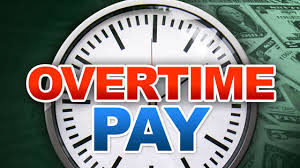A U.S. District Court judge in Texas on Thursday, August 31, 2017, dismissed an Obama administration attempt to expand federal overtime rules,  saying the Department of Labor relied too heavily on a salary threshold to determine exemption.
saying the Department of Labor relied too heavily on a salary threshold to determine exemption.
The expanded overtime rule had already been put on hold with a preliminary injunction just days before it was scheduled to take effect on Dec. 1, 2016. The late November injunction followed lawsuits filed by a coalition of 21 states and various business advocacy groups challenging the DOL’s authority in expanding the rule.
Judge Amos Mazzant III’s ruling last Thursday granted summary judgment in the case filed by the Plano, TX Chamber of Commerce and more than 55 business groups.
In his order, Mazzant concluded that the proposed changes to the overtime rule had overstepped Congress’ intentions in determining who should be exempt from overtime pay.
The original intent was meant to exempt workers with executive, administrative or professional capacity duties, but the Obama-era rule relied too heavily on salary without regard for job duties, Mazzant wrote.
What does this mean for Home Care?
The biggest impact the rule change had on home care agencies was the need to pay overtime to office staff who worked evenings and weekends taking on-call. Many agencies had schedulers and supervisors who were paid salary, and who earned more than $23,660 but less than the $47,476 in the revised DOL Rule. This meant that these team members would need to be paid hourly and would be subject to overtime after 40 hours. The big challenge for many agencies was tracking hours worked when taking on-call evenings and weekends.
With the reversal of the rule by Judge Mazzant, agencies could continue to pay office staff a salary, and not have to pay overtime if the staff member earns over $23,660, and if their job duties fit the job duties for an “exempt salaried position.” The key here is to look at the job duties. Just because someone is paid a salary of more than $23,660 does not mean that position is automatically classified as exempt. Their position must include “executive, administrative, or professional duties” as defined in the FLSA.
This Ruling Does not Affect Caregiver Overtime
This ruling does not affect the requirement to pay caregivers overtime if they work more than 40 hours per week. While there has been some conversation in congress about revising the Fair Labor Standards Act to return the home care Companionship Exemption, nothing has been done yet. You still need to pay caregivers overtime.



